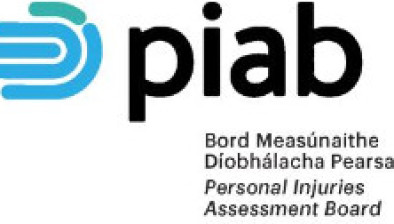High Court: Damages for mental distress caused by wrongful death to be paid to surviving dependant only
Damages for mental distress in a case brought by the statutory dependants of a woman who died as a result of alleged negligence must be paid only to the sole surviving dependant in circumstances where the second dependant died since the proceedings commenced.

About this case:
- Citation:[2019] IEHC 82
- Judgment:
- Court:High Court
- Judge:Mr Justice Garrett Simons
Finding that the €28,000 settlement offer was reasonable, Mr Justice Garrett Simons said that damages for solatium were intended to reflect the personal suffering of an individual, and that it was inappropriate to apportion some of the damages to a dependant who died since the proceedings commenced in 2011.
Background
Mrs Kathleen Kenny was a resident of Heatherfield Nursing Home. She was admitted to James Connolly Memorial Hospital in Dublin in October 2009 and was discharged back into the care of Healtherfield on 5 November 2009.
Mrs Kenny returned to hospital on 23 November 2009 and passed away later that day as a result of “health care acquired clostridium difficile infection”.
When Mrs Kenny died, she was 89 years old, and had two statutory dependants within the meaning of the Civil Liability Act 1961 – her niece, Ms Joan Jones, to whom she stood in loco parentis, and her sister, Ms Christine Sweeney (née Gallagher).
Fatal injuries claim
In November 2011, Ms Jones, as Mrs Kenny’s executrix, initiated personal injury proceedings. Alleging negligence resulting in Mrs Kenny’s wrongful death, Ms Jones pleaded that she and the other statutory dependants “suffered severe mental distress and will suffer loss, damage and expenses”.
Mr Justice Simons explained that under section 48 of the Civil Liability Act 1961 (as amended), a judge is required determine such amounts (if any) as the judge shall consider reasonable compensation for mental distress resulting from the death to each of the statutory dependants. The payment is referred to as the “solatium”.
J&N Sheridan Limited (trading as Heatherfield Nursing Home) took over carriage of the proceedings on behalf of all the defendants.
In November 2015, a notice of tender offer was submitted offering €20,000 plus Circuit Court costs. Ms Jones indicated on affidavit that she would accept a further offer of €28,000 (to include special damages of €7,890 for funeral costs) together with Circuit Court costs.
Mrs Kenny’s sister, Mrs Sweeney, passed away on 5 August 2016.
Reasonable settlement
In an application to rule on the offer, Mr Justice Simons said that the first issue was whether the overall settlement was a reasonable one.
Where there was no claim for financial dependency in respect of Mrs Kenny’s death, the claim was confined to damages for solatium, and special damages for the funeral costs: the solatium was capped at circa €25,400, special damages were agreed in the sum of €7,890, therefore the total value of the claim was for €33,290.
The offer of settlement was for €28,000 together with Circuit Court costs, therefore Mr Justice Simons said that in circumstances where liability was disputed, this was a reasonable settlement.
Apportionment of Damages for Solatium
Mr Justice Simons said the principal issue in the High Court was the apportionment of damages for solatium as between the statutory dependants of the deceased.
In particular, Mr Justice Simons had to consider whether it would be appropriate to direct that a part of the solatium be paid to the estate of the late Mrs Sweeney – which required consideration of the question of whether damages for mental distress were, in effect, personal to a statutory dependant.
Mr Justice Simons said he was satisfied that both Ms Jones and Mrs Sweeney had very close relationships with Mrs Kenny, and that if the matter been before the Court prior to Mrs Sweeney’s death, he would have been minded to direct that some payment be made to both individuals – however, Mr Justice Simons said that he had to have regard to the fact that Ms Jones was the only surviving dependant.
Considering Cubbard v Rederij Viribus Unitis and Galway Stevedores Ltd (1966) 100 ILTR 40, Mr Justice Simons said that the intention of payment of damages for mental distress reflected the suffering of an individual – therefore it is personal to the individual.
In this regard, Counsel for Ms Jones drew a loose analogy with the treatment of a claim for general damages in a conventional personal injuries action. Mr Justice Simons explained that a claim for general damages cannot be pursued subsequent to the death of a plaintiff, but that the position was different in relation to other heads of claim, such as special damages (section 7(2) of the Civil Liability Act 1961 considered).
Mr Justice Simons said that “on balance”, the justice of the case was best served by directing the full amount of the payment to be made to Ms Jones as the sole surviving dependant, and that a payment to Mrs Sweeney’s estate would be inappropriate. He said that Ms Jones had a stronger claim in any event, given that Mrs Kenny stood in loco parentis to her; and, given the personal nature of compensation for mental distress, it was more appropriate that this should be paid to the surviving statutory dependant rather than to the estate of one who has since deceased.
While it was possible that if a payment had been made to Mrs Sweeney during her lifetime that she may well have decided to pass that on to her own family members, and that an order directing payment to Mrs Sweeney’s estate might result in fulfilling her own intentions, Mr Justice Simons said that this was speculation only.
Considering all of the above, Mr Justice Simons ruled that the proposed settlement was reasonable and should be accepted. He also directed that the payment of €7,890 for special damages and the balance of the €28,000 be made to Ms Jones.
- by Seosamh Gráinséir for Irish Legal News









